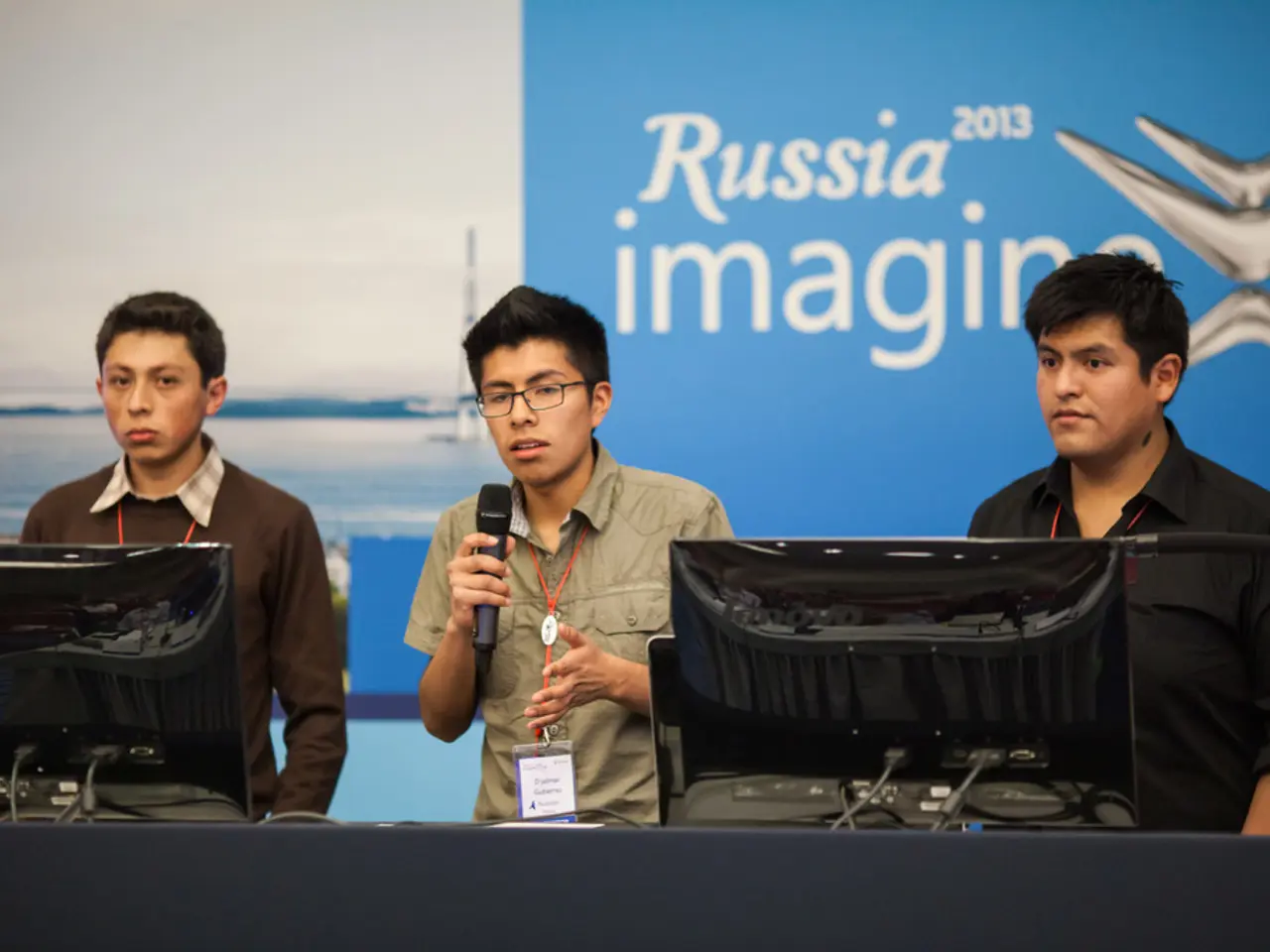The hidden factors influencing Putin's comments regarding Ukraine's EU affiliation.
In 2013, Ukraine erupted in widespread protests when Russia-backed President Viktor Yanukovych suspended the signing of an association agreement with the EU. This decision sparked a series of events that continue to shape the geopolitical landscape of Eastern Europe.
Russia's stance on Ukraine's potential EU membership has been ambiguous. While Russian President Vladimir Putin has stated that his country would not object to Ukraine joining the EU, observers suggest that Putin's statements may be a ruse to secure an international commitment against Ukraine's membership in NATO, which Russia perceives as a direct security threat.
The EU, on the other hand, offers little protection to Ukraine without significant security guarantees. Russia is more accepting of Ukraine's EU rapprochement because EU membership is seen as primarily economic and political integration, without direct military implications. In contrast, NATO membership involves a mutual defense pact, which Russia perceives as a military encirclement.
Joining the EU requires extensive reforms, alignment of laws, and practices with the EU. The process can take years, if not decades, to complete. Despite the challenges, Ukraine signed the association agreement with the EU a year later.
The Financial Times reported that Putin told US President Donald Trump he would freeze the conflict line in Donbas once Ukraine conceded all of it. However, Putin has not made any concessions regarding a potential future EU membership of Ukraine.
The EU's mutual defense clause offers protection and support to its members. However, experts believe that Europe remains vulnerable without US support. This vulnerability was highlighted in 2014 when Russia annexed Crimea and occupied 88% of Donbas, sparking international condemnation.
Some experts suggest that Putin is dangling the prospect of EU membership to influence Western leaders. Rafael Loss, a security fellow with the European Council of Foreign Relations (ECFR), warns that Putin may use his allies in the EU to chip away at the EU enlargement process. Meanwhile, George Beebe, director of grand strategy at the Quincy Institute, suggests that Putin's statement was a ruse to secure an international commitment against Ukraine's membership in NATO.
As the conflict in Donbas continues, there are concerns that Russia may intensify hybrid activities in Ukraine after the war ends. Soula, a security analyst, warns that Russia may use the EU process as an opportunity to meddle and slow down the process.
The NATO alliance is currently holding war games in Estonia, a move seen as a show of solidarity with Eastern European allies. However, the EU and NATO remain separate entities, each with its own unique implications for Ukraine's future.
In conclusion, the geopolitical landscape of Eastern Europe is complex and fraught with tensions. The path towards EU membership for Ukraine is long and challenging, and the potential for Russian interference remains a significant concern. The ongoing conflict in Donbas serves as a reminder of the stakes involved and the need for effective security guarantees to deter Russia from attacking again.
Read also:
- Tobacco industry's suggested changes on a legislative modification are disregarded by health journalists
- Trump's Policies: Tariffs, AI, Surveillance, and Possible Martial Law
- Uncovering Political Ad Transparency: A Guide to Investigating opponent's Political Advertisements in the Digital Realm
- Elon Musk praises JD Vance's debate performance against Tim Walz








